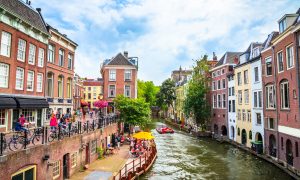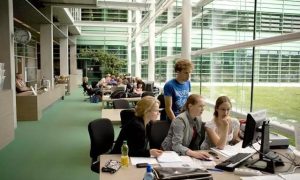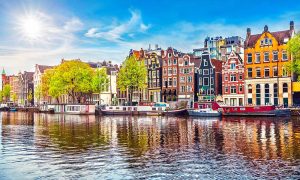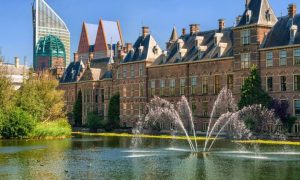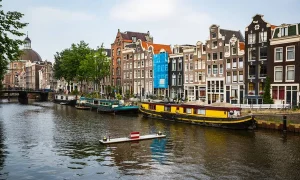The Netherlands, a member of the European Union, has long been recognized for its high quality of life, open culture and goodimmigrantsThe policy attracts a large number of international talents. However, in response to changes in the global economic situation and adjustments to social needs, the Dutch government has revised its immigration policy several times in recent years. These changes are important for people who wish toImmigration to the Netherlandsfor foreigners not only means new opportunities, but also brings new challenges.
2024.Immigration to the NetherlandsThe policy has changed again, especially in theskilled migrant, family reunification and post-study work visas, among others, have made new provisions. These policy changes will have a profound effect on future migrants. Therefore, it is especially important for people planning to move to the Netherlands to understand and adapt to these new rules.
In this paper, we will analyzeDutch immigration policyof the latest changes and offers some practical advice to prospective immigrants to help them better cope with the new rules.
One,Skilled migration to the NetherlandsChanges in policy
The Netherlands."skilled migrant"The scheme has always been an important way to attract highly skilled professionals. In recent years, the Dutch government has made appropriate adjustments to this policy, mainly in terms of income requirements and the application process.
- Increase in income requirements
In 2024, the income requirements for skilled migrants in the Netherlands were revised upwards. For applicants aged 28 and above, an annual income of around €55,000 is required. For skilled migrants under the age of 28, the income requirement is around €38,000. Although this income level is relatively high, it reflects the Netherlands' desire to attract people with more high-end skills and experience. - More rigorous review process
The new policy requires employers to provide more detailed supporting documents when applying for a highly skilled immigrant visa, including a report on the company's business situation and an analysis of the company's role in the Dutch economy. The change is primarily intended to prevent abuse of the skilled migration program and to ensure that the Dutch immigration system supports industries that have a genuine need for highly skilled people. - Accelerated program with increased innovation positions
The Dutch government has also promoted an accelerated approval process, especially for positions in high-demand sectors such as information technology, engineering and biomedicine. In addition, for emerging fields such as artificial intelligence, green energy and digital transformation, the Netherlands has created a special visa for innovative talents in order to attract experts in the relevant fields more quickly.
II. Updates to the family reunification policy
Family reunification has always beenDutch immigration policyThe Netherlands is an important part of this. In the light of demographic changes and the growing number of immigrant families in the Netherlands, the Dutch government has updated its family reunification policy in order to ensure the legal and harmonious integration of immigrant family members.

- Income and housing requirements
The new family reunification policy requires applicants to prove that they have sufficient financial means to support their spouse and children, and that they must provide suitable living conditions. This means that immigrants will not only have to prove that they have enough income to support the family, but also that the accommodation they live in meets the basic standard of living in the Netherlands. - Requirements for spouses and children
The new rules further clarify the application requirements for spouses and children. For spouses, in addition to income and housing requirements, applicants are required to provide proof of language proficiency to ensure better integration into Dutch society. The age limit for children has also been raised, so that normally only children under the age of 18 can immigrate with their parents and subject to other conditions for family reunification.
III. Changes in post-study work visas
The Dutch post-study work visa (the so-called "search period visa") is an important policy to attract foreign students. As the number of international students in the Netherlands increases, the Dutch government has decided to optimize and adapt this policy in order to support more talented international graduates to stay and work in the Netherlands.
- Extension of validity of work visas
In 2024, the Dutch government announced that the validity of the post-study work visa would be extended from one year to two years. This change allows international students to have a longer period of time after graduation to look for job opportunities that match their specialization, thus increasing their chances of getting a job in the Netherlands. - Preferential treatment for STEM majors
The Netherlands particularly encourages graduates in STEM (Science, Technology, Engineering and Mathematics) fields to stay and work in the Netherlands. As a result, international students who graduate in these fields will be able to obtain work visas more easily and have more employment opportunities. The Dutch government is also providing additional support measures to help STEM graduates connect with local Dutch companies. - Increase in salary requirements
The new policy requires post-study work visa applicants to meet a minimum salary standard to ensure they are self-sufficient once they have been granted a work visa. For graduates of STEM majors, this standard is relatively low, while graduates of other majors need to meet a higher salary requirement.
IV. How to respond to the new rules?
In the face of changes in Dutch immigration policy, immigrants should adopt the following strategies to better adapt to the new regulations:

- Understanding and planning migration paths in advance
As Dutch immigration policies are constantly changing, potential immigrants should be aware of the latest policies and requirements before applying to ensure that they meet the latest eligibility criteria. Whether it is for skilled migration, family reunification or post-study work visas, being aware of the policy changes will help applicants to develop a more appropriate migration plan. - Improvement of language skills
With the Dutch government's gradual increase in language requirements, especially in family reunification and work visa applications, language proficiency has become an important assessment criterion. Migrants should prepare in advance, especially in learning Dutch, to help them successfully pass their visa applications. - Ensuring economic stability
As the Dutch immigration policy has strict income and housing requirements, immigrants should ensure that their financial situation is stable and prepare the relevant supporting documents in advance. These may include income documents, bank deposits, employment contracts and rental contracts. - Focus on industry-specific immigration opportunities
The Dutch government is particularly supportive of talent in specific industries, especially highly skilled individuals in the fields of information technology, engineering, healthcare and green energy. Migrants can focus on recruitment opportunities in these fields and choose industries that meet the needs of Dutch immigration policy to improve their chances of obtaining a work visa.
V. Summary
Immigration to the NetherlandsPolicy is undergoing important changes in 2024, particularly in the areas of skilled immigration, family reunification and post-study work visas. While these new rules may present some challenges for immigrants, they also provide greater opportunities for those who qualify to apply. By understanding the policy changes in advance, preparing adequate documentation, and ensuring that requirements such as income and language are met, immigrants can successfully navigate the new rules of Dutch immigration policy and open themselves up to broader prospects.

